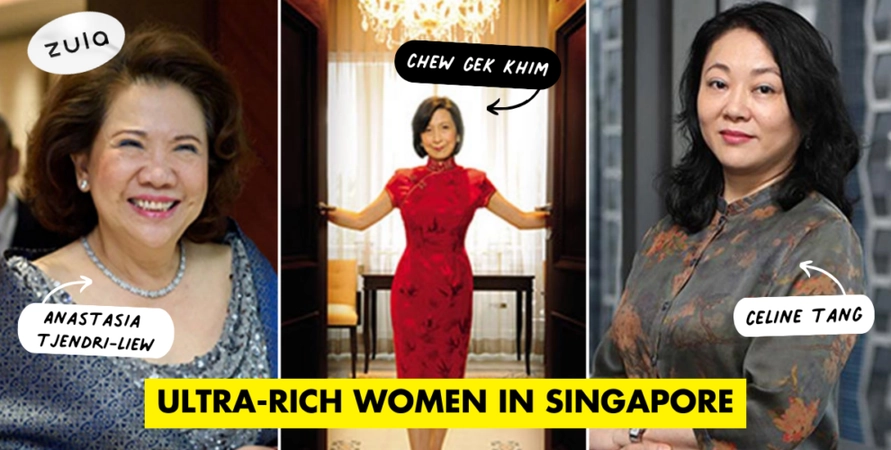
Unmasking Hong Kong's Mistress Culture: A Disturbing Trend in Love and Wealth
2025-01-15
Author: Rajesh
Unmasking Hong Kong's Mistress Culture: A Disturbing Trend in Love and Wealth
January 15, 2025 – Hong Kong
The recent public revelation of Rachel Chung's nine-year liaison with banking mogul Patrick Ma has peeled back the layers of Hong Kong’s polished exterior, exposing the troubling interplay between power, wealth, and desire that defines a segment of the city's social fabric. At just 34 years old, Chung exemplifies a new generation of mistresses who prioritize financial stability over traditional morality, boldly asserting, "mistresses are often wealthier than wives; money is more important than marriage."
In contemporary Hong Kong, where the soaring cost of real estate and living expenses overshadow the romantic ideals of the past, some women are making calculated decisions to embrace the role of a mistress—an arrangement reminiscent of investment strategies rather than illicit affairs. The striking 32-year age gap between Chung and Ma, 66, underscores a prevailing transactional dynamic, where youth and allure are exchanged for wealth and social status.
This phenomenon is not simply about moral failings; it encapsulates a broader societal trend toward pragmatic life choices. Advocates of this lifestyle frame their decisions as rational, claiming they aren't dismantling families but rather accessing resources in a landscape where conventional methods of wealth generation feel increasingly unattainable. In this sense, modern romance has become a mere extension of capitalism—where love and loyalty come with a price tag.
The economic backdrop of Hong Kong provides fertile ground for this mistress culture. With basic housing currently averaging over HK$10 million, and social capital dictated by luxury brands and elite memberships, traditional marriage suddenly appears outdated to many younger women. This new outlook reflects a distorted interpretation of success within a city characterized by relentless materialism—where financial security overshadows ethical considerations.
Intriguingly, the allure of being a mistress is laden with complex power dynamics. Unlike wives restrained by societal norms and familial expectations, women like Chung see themselves as autonomous agents, crafting the parameters of their intimate arrangements. The secrecy contributes an addictive thrill, while the lack of everyday domestic duties keeps these relationships suspended in a perpetual state of idealization.
Culturally, Hong Kong's emphasis on 'face' and prestige amplifies the mistress phenomenon. Wealthy men, like Ma, often showcase their mistresses as symbols of success and virility. Meanwhile, women like Chung navigate the complexities of societal judgment, operating within a morally ambiguous realm where age-old values clash with contemporary materialist ideals.
The fallout from such affairs usually elicits public outrage and fierce debates across social media, yet the persistence of these arrangements reveals an unsettling truth: they fulfill an existing, albeit distorted need within Hong Kong’s social structure. They signal a culture where everything—and everyone—has a price, and absolute morals have been supplanted by flexible ethics.
Chung’s bold assertions mark a departure from the taboo-laden narratives of previous generations, presenting the mistress not as a figure ridden with guilt, but as a canny entrepreneur exploiting her position for financial gain. This evolution has both sparked horror among traditionalists and intrigued a younger generation that views conventional relationships with growing skepticism.
As Hong Kong grapples with escalating inequality and faltering social mobility, the rise of the mistress reflects a troubling adaptation to stark economic realities. It raises questions about the viability of emotional, rather than transactional, connections in a society where morals seem increasingly like luxury commodities.
Chung's shocking declaration—that "money is more important than marriage"—is more than a personal value; it acts as a searing critique of Hong Kong's prevailing ethos. In a city where material success is equated with value, can anyone truly be surprised when the next generation opts for financial pragmatism over romantic idealism?
Present-day mistresses often defy the stereotypes of being desperate or malicious. Many are well-educated, professionally successful women who consciously choose their paths in life. The existing stigma attached to this role has shifted toward a type of pride in "outsmarting" the traditional system.
One anonymous mistress from Hong Kong's financial district captured this sentiment succinctly: "I have my own career, my own apartment, and my own life. This arrangement offers me financial stability without the responsibilities of a marital commitment." Such viewpoints reverberate through the luxury boutiques and upscale restaurants of Hong Kong, where mistresses stroll confidently, often more visible than their married counterparts.
Alarmingly, among certain social circles, these arrangements are becoming normalized. Young women presently discuss strategies for engaging wealthy married men as casually as they would debate investment choices. The moral quandary has shifted from "Is this wrong?" to "Is this advantageous?"
Social media plays a pivotal role in this shift; platforms like Instagram enable mistresses to flaunt their lavish lifestyles while maintaining a façade of discretion. Chung's calculated use of social media—posting selective content to signify her status without overtly acknowledging her relationship—serves as a template for modern mistress management.
Connecting these arrangements to Hong Kong’s stark wealth divide reveals an unsettling truth. While wives have legal claims to marital assets, mistresses exist in a precarious reality where their lifestyle hinges on their benefactor's continued interest. This creates a unique form of emotional labor, where traits like youth and charm become marketable assets to be skillfully managed.
Beneath the surface glamour lies a sobering reality. Numerous women involved in this lifestyle report feelings of isolation and emotional vacuity. One former mistress lamented, "The hardest part isn’t the secrecy or judgment—it’s knowing you're ultimately replaceable." This disposable nature leads to a relentless pressure to project a polished image, perpetuating cycles of materialism and emotional disconnect.
The ramifications for the broader Hong Kong landscape are significant. Young women observing the achievements of figures like Chung may begin to dismiss conventional paths of security through education and stable careers as unnecessarily complicated. Meanwhile, wives find themselves caught in a culture reluctant to embrace divorce yet tacitly accepting of extramarital affairs. Most concerning is how these relationships reinforce longstanding power imbalances: wealthy men maintain reputation through conventional marriage while receiving gratification outside, wives cope by looking the other way, and mistresses secure financial gain at the expense of genuine emotional bonds. It's a precarious system that works—until it collapses.
The ultimate irony rests in the emotional cost of these arrangements. Despite the material advantages, many relationships end in emotional bankruptcy. When fresh allure fades or youth diminishes, these women often face a sobering reality—they possess expensive desires but depleted emotional resources. The Patricks of Hong Kong ultimately seek younger mistresses, leaving behind detritus of fragmented relationships and harsh lessons about the true toll of commodifying love.
As each layer is peeled back from the facade of Hong Kong's mistress culture, one questions if the allure of such an arrangement is worth the deeper emotional costs that lie just beneath the surface.

 Brasil (PT)
Brasil (PT)
 Canada (EN)
Canada (EN)
 Chile (ES)
Chile (ES)
 Česko (CS)
Česko (CS)
 대한민국 (KO)
대한민국 (KO)
 España (ES)
España (ES)
 France (FR)
France (FR)
 Hong Kong (EN)
Hong Kong (EN)
 Italia (IT)
Italia (IT)
 日本 (JA)
日本 (JA)
 Magyarország (HU)
Magyarország (HU)
 Norge (NO)
Norge (NO)
 Polska (PL)
Polska (PL)
 Schweiz (DE)
Schweiz (DE)
 Singapore (EN)
Singapore (EN)
 Sverige (SV)
Sverige (SV)
 Suomi (FI)
Suomi (FI)
 Türkiye (TR)
Türkiye (TR)
 الإمارات العربية المتحدة (AR)
الإمارات العربية المتحدة (AR)